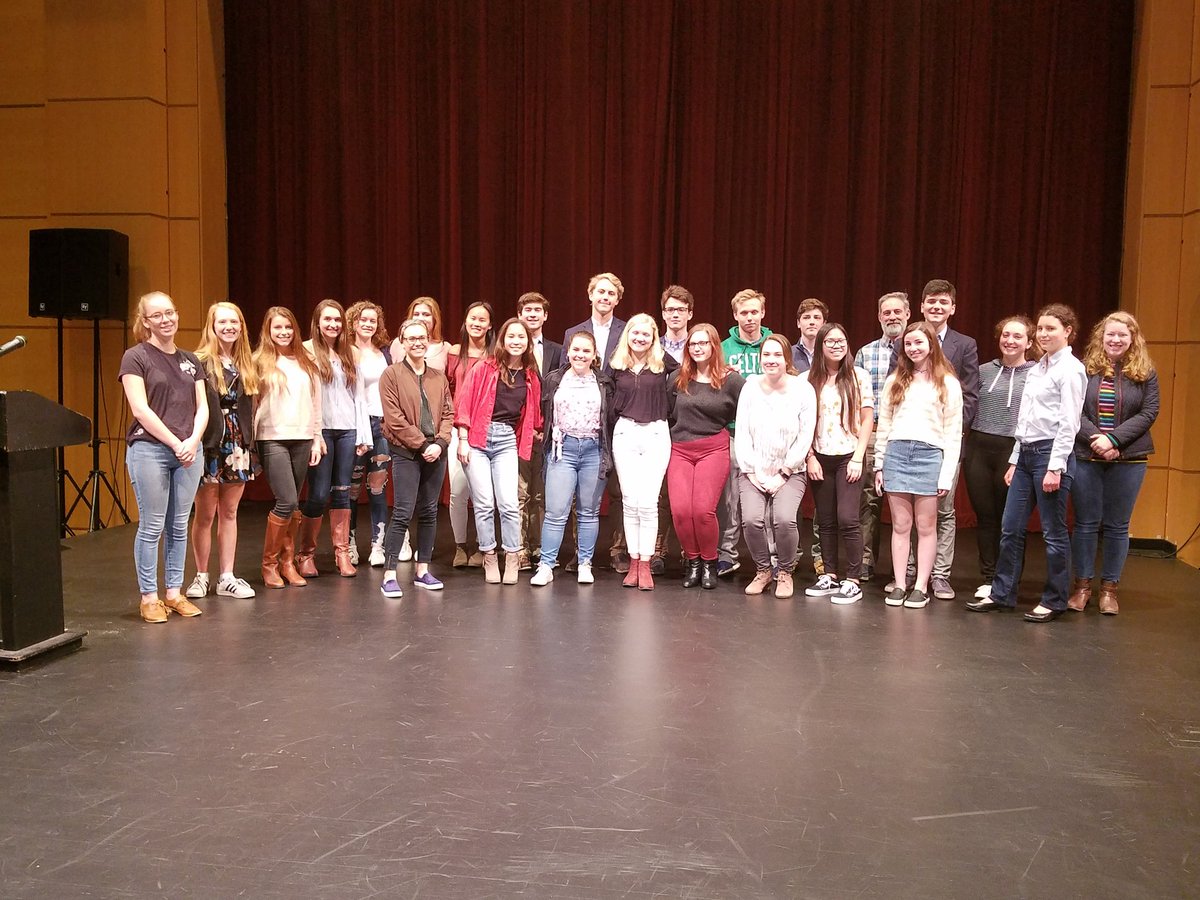Madison Bates may be travelling hundreds of miles away for college next year, but the MHS senior is still focused on improving her hometown. With less than two months until graduation, Bates has established Marblehead’s first chapter of the National Green Schools Society, better known as NGSS. NGSS is a national program that organizes environmentally-conscious students to perform meaningful environmental service within their communities. By promising the incentives of an honors society, members are not only motivated to contribute, but those that are already completing environmental service can gain further recognition. In fact, MHS already has two organizations dedicated to supporting the environment: Recycling Club, which strictly maintains the school’s recycling program, and Environmental Club, which operates the school’s composting program, all while sparking an important dialogue on the school’s environmental impact. Bates is a leader in the latter club, but she has established this NGSS chapter for the sake of increasing involvement. “I figured if we want more people to participate, then we should make a national honors society for environmentalism,” Bates explains, “That way more is being done, because we don’t have the manpower in Environmental Club.”
NGSS has certainly attracted a large base; approximately 40 students were inducted into the chapter’s first class of members on Tuesday, April 30. Bates admits that some of these students were likely motivated by the chance to boost their resume with participation in another organization, but she welcomes this possibility with open arms. “The whole goal of the Environmental Club is to make everyone more environmentally aware,” emphasizes Bates. “It’s awesome that we have people who want to further their interest [through NGSS].”
Connor Ryan, an English teacher at MHS and staff advisor for all three of the school’s environmental organizations, agrees. “If at the beginning there needs to be an incentive to recycle, or to compost, or to remember to turn off the water when you’re brushing your teeth… that’s totally okay,” says Mr. Ryan. To both Bates and Ryan, this incentive may be what makes the program so successful. After all, while students can count fairly simple lifestyle adjustments such as walking to school or drinking from a reusable water bottle towards service hours, they will also be tasked with organizing their own environmental service project. Mr. Ryan cites the structure of the organization as a means for this impact: “[NGSS gives] a really, really concrete set of reasons for students to participate in projects that we already had running, but that weren’t really taking off.”
Beyond the basic membership requirements of the group, Marblehead’s NGSS chapter still has room to adapt its structure based on individual goals and interests. While Bates looks forward to guiding future officers through this process, she will be unable to see through many of her personal visions for the group, as she’ll be graduating in June. Bates does think it will be important for members to focus on systemic environmental hazards, especially those that the high school presents. After all, while the school’s newly installed LED lighting promises to cut energy consumption significantly, school lunches are still served on styrofoam trays, and many teachers print documents that could be shared online instead. Clearly, there is a lot that can be improved.
Public environmental interest comes in waves. There will always be a strong base of environmental advocates to sustain the ongoing movement, but the average American’s dedication to protecting the environment is inconsistent. It is only when footage surfaces of an emaciated polar bear hobbling through a melted tundra, or of a sea turtle whose neck is wrapped in soda can rings, that we remember all that is at stake. In these moments, we look for clear paths of action, and we often end up focusing on simplified environmental enemies such as plastic straws or mylar balloons. This course of action is important, as it makes environmentalism accessible.
Of course, there are already students like Madison Bates, who care deeply about the environment and who seem to know exactly how to protect its condition. Bates will be attending Johns Hopkins University next fall, where she plans to study political and environmental science, with the hopes of becoming an environmental lawyer. This sureness is inspiring but potentially daunting for those that see NGSS as their first step into environmentalism. However, the defined structure of NGSS makes commitment like Bates’s seem possible and worth working towards achieving. It’s unclear what the future holds for this organization, but the group has undoubtedly reignited student interest, and with 40 new members to sustain this passion, Bates is hopeful for the future.

